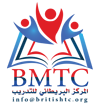The Essentials of Budgeting & Cost Control Principles & Practices
Why Choose this Training Course?
Budgeting and Cost Control is simply a must for contemporary organizations. This interesting course help you master the most widely used internal tools for planning and monitoring activities and sustaining performance over time – Budgeting & Cost Control.
The Budgets are inextricably linked with both strategy formulation and execution. But accurate Budgets depend on Cost Control and analysis. It is essential to understand how costs behave so that realistic plans can be produced, and appropriate financial and non-financial resources can be made available to the business. Management Control builds on the budgets to understand variances and take corrective actions. This course will allow you to master the traditional tools of budgeting and control as well as new dynamic approaches, which reflect and respond to the current complex business environment.
This course will feature:
- The links among Strategic planning, Budgeting and Cost Control
- The key features of Budgeting
- A deep understanding of Cost terms and concepts
- Traditional and innovative approaches to Budgeting and Cost Control
- An understanding of the impact of non-financial KPIs on Strategic planning, Budgeting & Cost Control
What are the Goals?
- Build an integrated planning, budgeting and reporting process
- Understand the role of Budgets within organizations
- Understand Costs behavior and manage costs more effectively
- Master traditional and innovative approaches to Budgeting and Cost Control
- Select the performance measurement systems and the KPIs that work
Who is this Training Course for?
This course is suitable to a wide range of professionals but will greatly benefit those with direct or indirect budget responsibilities within a team, a department or a division. Moreover, the course is suitable to first appointment professionals on fast-track development programs, and to professionals from every business discipline and department who have to run budgetary plans, and who are responsible for cost and strategic analysis.
- Financial Planning & Control Staff;
- Those with direct or indirect financial responsibilities
- Those from every business discipline and department who have to run departments and budgetary plans, and who are responsible for cost and strategic analysis
- Those from all sectors of industry, irrespective of functional responsibilities, but particularly those involved in manufacturing, production, engineering or sales
- Those working in a project management environment
How will this Training Course be Presented?
The course combines theory and practice. Therefore, besides in-class lectures, discussions and exercises, we use company examples to illustrate how the techniques presented have been applied in real case studies. The purpose is to use a mix of proven learning techniques to ensure maximum understanding, comprehension and retention of the information presented.
The Course Content
Day One: The Role of Budgeting & Cost Control
- The complexity of managing contemporary organizations
- Strategic planning, budgeting and management control systems
- The key elements of budgeting: objectives, initiatives and resources
- Understanding the context for budgeting & the role of the controller
- What are the advantages and the disadvantages of budgeting
- What is it the situation in your organization? How to improve it?
Day Two: Budgeting and Cost Control
- What are the essential inputs of the budgeting process?
- What is zero-based budgeting?
- Costing for budgeting: key terms and concepts
- Variable vs. Fixed costs
- The important role of contribution margin
- Cases, problems and examples
Day Three: Costing: From Traditional to Activity-Based
- Complementing traditional costing with activity-based costing
- Direct vs. indirect cost
- Cost allocation: traditional costing and activity-based costing (ABC)
- From traditional budgeting to Activity-based budgeting (ABB)
- The importance of costs analysis
- Cases, problems and exercises
Day Four: Capital Budgeting
- Capitalized vs. period costs
- Capital budgeting
- Payback period
- Net-present value
- Internal rate of return
- What is it the situation in your organization?
Day Five: Beyond the Budgets: linking financial and non-financial KPIs
- What are the limits of budgeting and financial reporting?
- What are the drivers of the business model?
- What are the trades-off in place?
- Beyond budgeting: integrating financial and non-financial issues
- The balanced scorecard and KPIs
- Case, problems and examples

